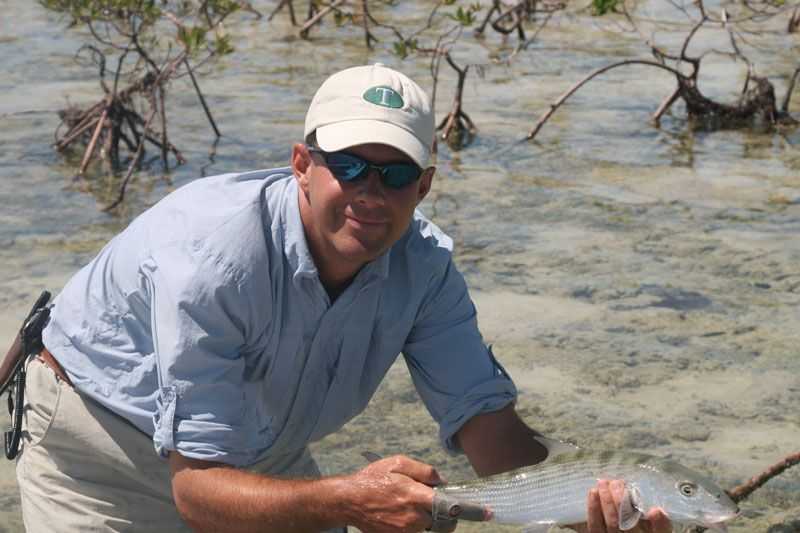Ghost Stories is a vital research project aiming to integrate local Bahamian knowledge into fisheries habitat mapping and conservation. Ghost Stories is also an opportunity to learn about Bahamas bonefishing from Bahamian legends, the guides themselves. The stories these pioneering elder Bahamians hold are important to the history and heritage of the Bahamas, and beyond. I plan to collect and document this knowledge, which tells the story of what many anglers consider the “Bonefishing Capital of the World.”
In this installment, I will highlight research done for Ghost Stories on Grand Bahama this past August.
Ghost Stories research covering the Bahamas began this summer in Grand Bahama for a reason. Previous bonefish related research sponsored by Bonefish and Tarpon Trust as well as The Fisheries Conservation Foundation have established strong relationships between researchers, anglers, guides and lodges, so it seemed logical to begin my research on Grand Bahama. Trusting relationships are vital for accurate information related to angling locations that guides frequent.
The West End of Grand Bahama is largely developed and hosts some excellent bonefishing opportunities both on the north and south sides. I was fortunate to stay at the Blue Marlin Cove Marina (BMCM), where inshore and offshore angling opportunities abound. Primarily catering to deep-water anglers, the BMCM also employ’s bonefish guide Carl Rolle, son of the late, legendary Isreal Rolle, better known as “Bonefish Folley.” Both Carl and his brother, Tommy, guide the waters made famous by their father whom I am sorry to have missed as a portion of this research.
I was fortunate to sit with both guides discussing the West End angling history, ecological threats and conservation through habitat mapping. Both guides are vividly aware of the importance of bonefish to the Bahamas yet see trouble brewing around mismanagement of snapper fisheries, netting and need for food. As “unprotected” species dwindle, bonefish may be sought for more than just recreation, and Tommy is a vocal advocate for enhanced regulation, enforcement and education.
I was shocked to learn that many Bahamians know little of bonefish or bonefishing! This fish, so vital to the out-island economies of the Bahamas needs more recognition and related education in schools should be required. Bonefish guiding, as I was reminded by the Rolle brothers, is a highly reputable, lucrative employment option for Bahamians, contingent on a healthy resource of course.
A highlight of my trip to the West End was time spent at the West End Eco Fishing Camp (WEEFC) with young Bahamian campers and leaders Linda and Keith Copper. The camp provides free learning programs for local children during the summer and is solely funded through donation. I was able to teach some children how to tie flies and we did a little fly casting.
Carl and Tommy Rolle help out with the camp proving fly fishing expertise, but campers also learn about local ecology, biology, recycling, and the Coopers keep their participants busy with swimming instruction, games, crafts and sailing. Their efforts are going a long way to improving the lives of local Bahamian children, and I commend the Coopers on their tireless efforts and Carl and Tommy for their help in the process. An excellent educational model is being practiced in the West End.
Next up, I’ll take my stories east toward Freeport, where I interviewed guides at H2O Bonefishing, Grand Bahamas Bonefishing and the North Point Riding Club. The stories are legendary much like the long time guides!
For more on Ghost Stories, visit http://tomkarrow.wix.com/bahamas-guide-tek, where research updates will be provided on an ongoing basis.
[easy-social-share]
